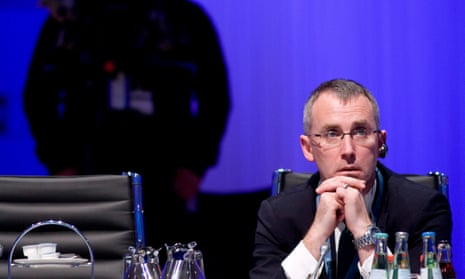Privacy groups have expressed serious concern at the prospect of a “Great British Firewall” proposed by the surveillance agency GCHQ to protect major British companies against malicious hackers.
They said they were worried that it could be used to deny freedom of speech, with the government potentially able to designate sites they disapprove of as “malware”.
There is also concern about the prospect of handing over such power to GCHQ, given its track record of intrusion working in tandem with the US National Security Agency (NSA).
Thomas Falchetta, a legal officer for Privacy International, said: “Given the broad scope of GCHQ’s hacking operations both domestically and abroad, this seems like the fox protecting the chicken.”
GCHQ insisted that privacy concerns would be “hardwired” into the project and companies would have a choice about whether to participate or not.
GCHQ has long argued that, in spite of all the revelations over the last three years about its hacking operations and the scale of its surveillance, it is also responsible for trying to battle hostile hackers. It says that its expertise make it best placed to help UK companies.
Michael Harris, an adviser to Don’t Spy On US, an umbrella group for privacy organisations, said: “It is outrageous. It is what China is up to. This is taking place in a context in which the government is clamping down on freedom of expression and extending surveillance.”
He said that if, for instance, there was a preacher the government did not like, it could block them. It would also put the UK on a collision course with the European court of human rights.
“We are seeing things floated in speeches without being thought through or without considering the long-term consequences,” he said.
China’s Great Firewall is used for extensive censorship of sites it judges to be hostile.
GCHQ’s plan was set out by Ciaran Martin, the head of its national cybersecurity centre, at a conference in Washington on Tuesday. Also at the conference was Admiral Michael Rogers, the NSA’s director and head of cybersecurity.
Martin did not use the phrase Great British Firewall in his speech, but it was dubbed as such in parts of the UK media. What Martin is ostensibly proposing, though he stresses it is still in its infancy, is closer to a Great British Spam Filter.
He said GCHQ was exploring a substantial increase in filtering. “What better way of providing automated defences at scale than by major private providers effectively blocking their customers from coming into contact with known malware and bad addresses,” he said.
“It’s crucial that all of these economy-wide initiatives are private-sector led. The government does not own or operate the internet.” He said consumers had a choice. The filtering “would have to be opt-out based. So addressing privacy concerns and citizen choice is hardwired into our programme”.
Asking GCHQ for protection carries risks, given its ability to hack into the private details of companies, but some firms and customers might be tempted by the trade-off in terms of proposed security against hackers.
GCHQ’s prime aim is to protect government sites and industries regarded as central to national security, but it is offering to widen the scope to include major private companies.
Martin told the Billington conference that the number of cybersecurity incidents detected was growing. It currently stood at about 200 a month, he said, twice as many as a year ago.
He was making his first public comments as head of the national cybersecurity centre, which formally opens next month.

Comments (…)
Sign in or create your Guardian account to join the discussion